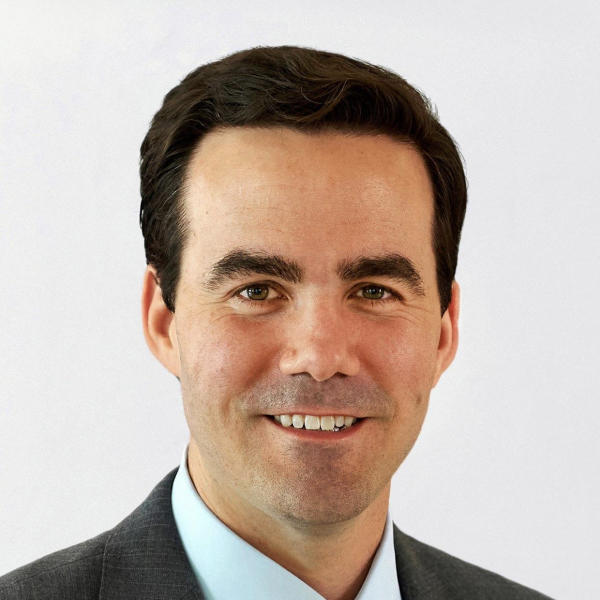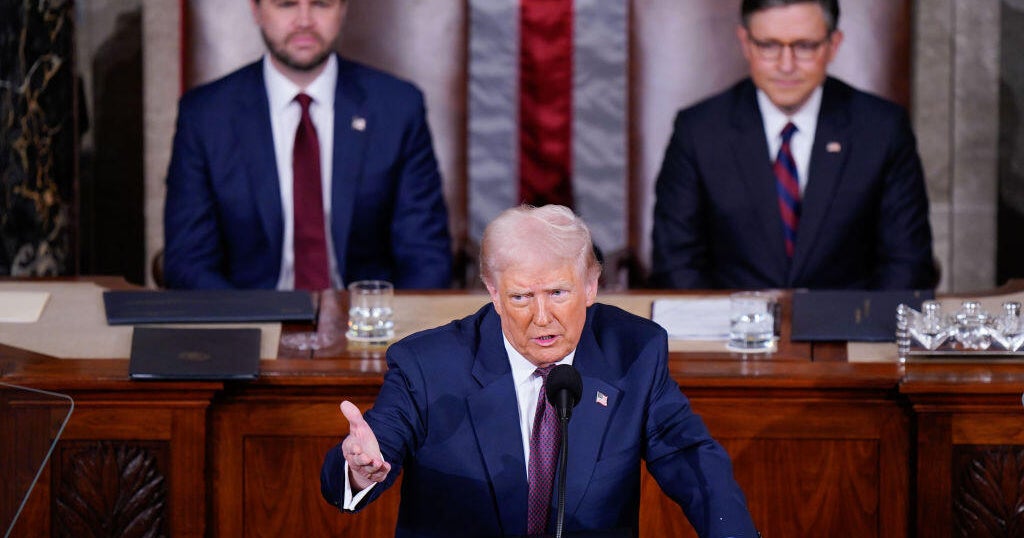Election 2024: One year to the finish line
The Dubliner is a different sort of Washington monument – an Irish pub on Capitol Hill. There, legendary Speaker of the House Tip O'Neill keeps a watchful eye over the bar, and small talk often strays into politics.
With today, November 5th, marking exactly one year until Election Day 2024, "Sunday Morning" invited longtime journalist James Fallows and Washington Post Congressional reporter Marianna Sotomayor for coffee and conversation about how to cover, and consider, the coming marathon for American democracy.
To start off, what is at stake?
"Everything is at stake," Fallows said, "which is a cliché and is always true, but it seems even more true [today]. Most of them turn on big fundamentals of economics and people's sense of the world. And I think those fundamentals are looming large again."
And what are the fundamentals? "I would say that this is going to be a bit of a repeat to a lot of people of 2020, in terms of what are the issues that matter most: the economy, number one," said Sotomayor. "But I think the biggest difference that we didn't see in 2020 is the issue of abortion. That has completely changed the conversation. Even when you talk to Democrats from this last 2022 cycle, they say, 'Wait, now we're the party that's saying we don't want government infringing on your rights.' That was the Republican line for so long."
- CBS News poll finds most say Roe's overturn has been bad for country
- After Ohio Issue 1's defeat, focus turns to abortion rights amendment on November ballot
- Ballot measures have been critical in defending abortion rights. Now, GOP politicians want to change the rules
The GOP line — on abortion, taxes and climate change — is now being pulled further right, with Republicans' unanimous selection of a deeply conservative Speaker of the House, Mike Johnson, who worked with former President Donald Trump to try to overturn the 2020 election.
Costa asked, "There's now an election denier as the new Speaker of the House. What does that mean for 2024?"
Sotomayor replied, "Democrats are trying to basically inform the public: Look, this is who this man is. And there are concerns, even from those vulnerable Republicans who live in those swing districts, who will be faced with all of these attacks about extremism, election denialism. Now, it's just an extra hurdle for those vulnerable Republicans."
The 77-year-old Trump's legal troubles – including two prosecutions for attempting to block the certification of the 2020 election – have so far done little to hurt his standing among Republicans. But their impact on critical swing voters remains to be seen.
President Joe Biden will be running on low unemployment and his policy wins on climate and infrastructure. Biden also receives strong marks from most Democrats (and even some Republicans) on Ukraine and the Middle East.
But voter frustration with lingering inflation, and concern about age (Biden turns 81 in two weeks), remain.
Sotomayor said, "Interesting to see just which parties are talking about age. Republicans don't talk about it that much. They know that Trump is older, but it's not something that you even hear Republican lawmakers, Republican voters talking about too much. It is an issue among Democrats, because Democrats are talking about it. Democrats have made age an issue, and that is now being reflected on Biden. And it is a fair question; the President had said it himself. They just need to find a good defense to explain that he can still be able to do this, because it is a legitimate fear and question that voters have."
Fallows said, "As the one literal grandfather at the table, I think that the way Biden can properly position himself is in the mode of Dwight Eisenhower or Harry Truman – two relatively uncolorful, relatively non-rhetorically gifted presidents whose selling point became that they were steady hands at the controls. I think that Biden could do worse than thinking of Dwight Eisenhower, a Republican."
Steadiness is certainly in short supply these days. Another possible federal shutdown is just 12 days away.
Republican Speaker Johnson has tied aid to Israel to cuts in the IRS budget, even though the Congressional Budget Office says that could balloon the deficit.
Meanwhile, further aid for Ukraine is being called a no-go by many Trump allies in Congress.
Amid this drumbeat of difficult headlines, Pew Research finds fewer Americans are closely following the news than seven years ago.
That led us to a final question about what's ahead for our own profession.
Costa said, "Washington, especially the press corps, we often just seem to be burdened by assumptions and conventional wisdom about how these elections are going to play out."
Fallows said, "Given the unknowability of elections, we're always surprised; maybe it means that we collectively should spend less time trying to predict what's going to turn out because we're bad at it! You know, bookies in the sports worlds, they had to pay off, and we don't really have to pay off that often. This is basically an impossible task of predicting exactly how people are going to vote. Maybe this means we recognize its impossibility, and spend more time on other things than forecasting."
Costa said, "After covering this next election, I hope you can both join me here at this table. We won't order a coffee; we can each get a pint of something stronger."
For more info:
- James Fallows
- Marianna Sotomayor, The Washington Post
- The Dubliner, Washington, D.C.
Story produced by Ed Forgotson. Editor: Carol Ross.




